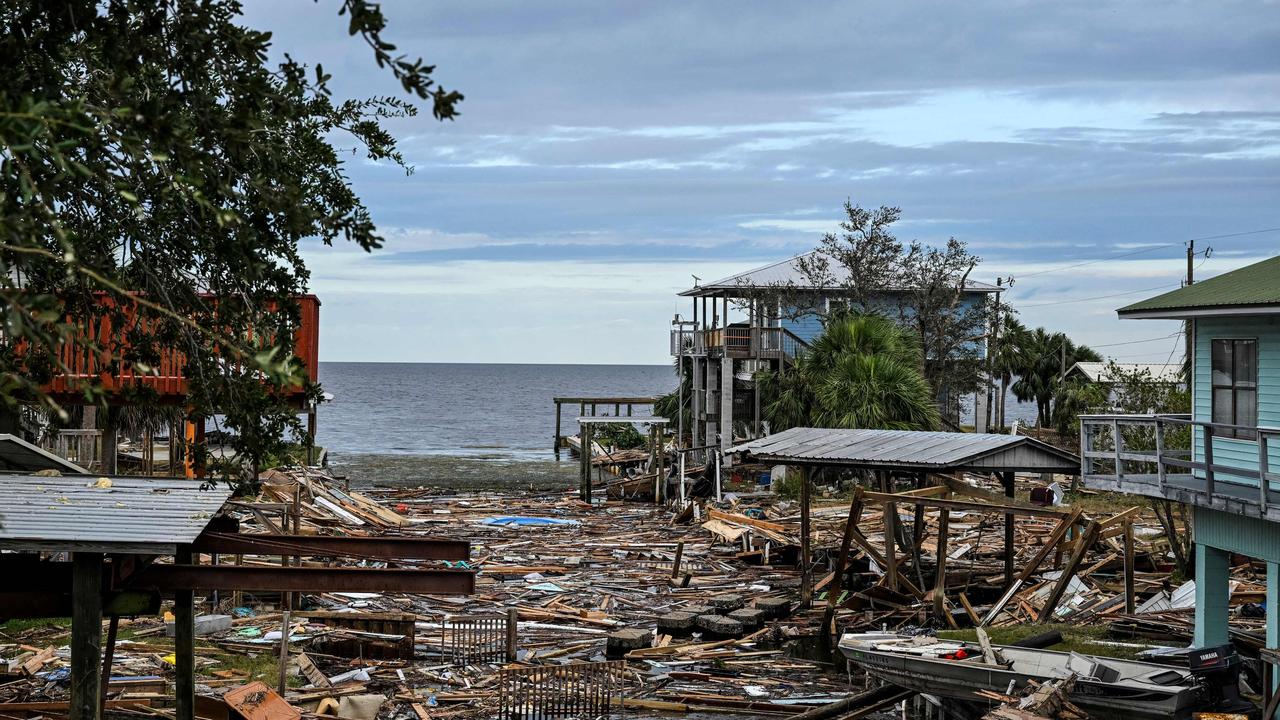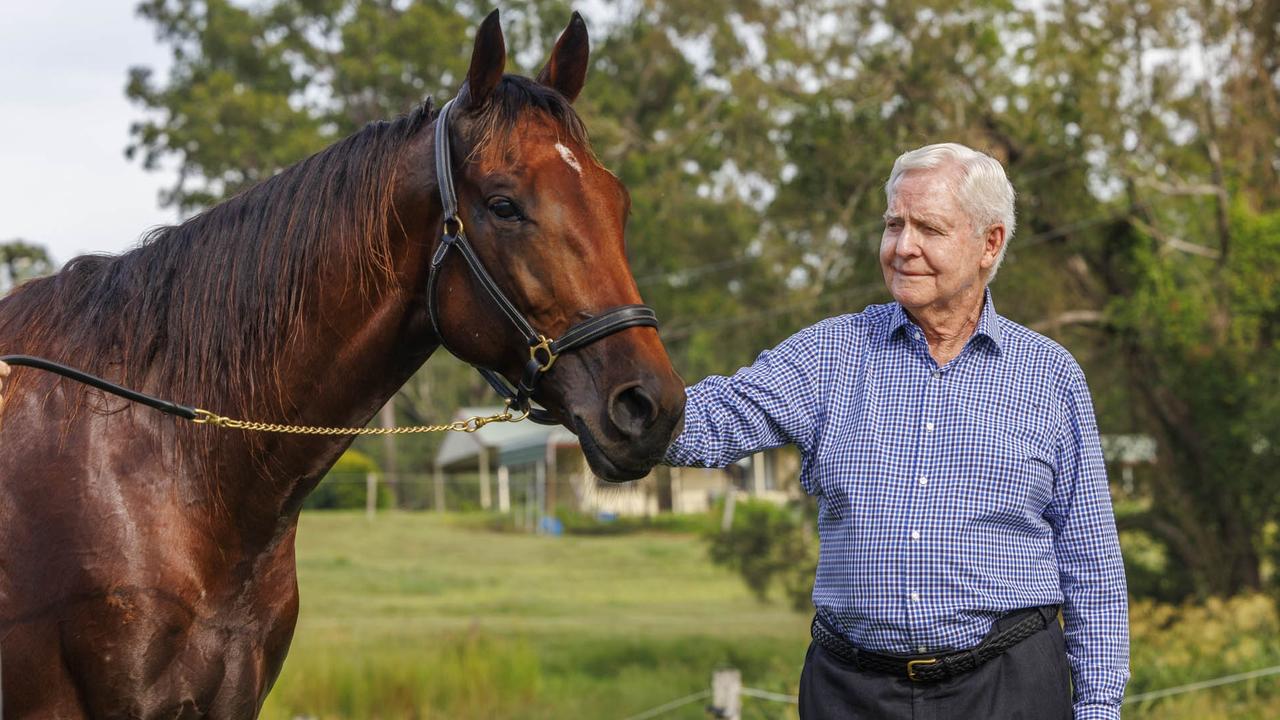Aged-care royal commission: providers back probe
Aged-care companies cautiously back the royal commission into the sector, as investors brace for another bruising probe.
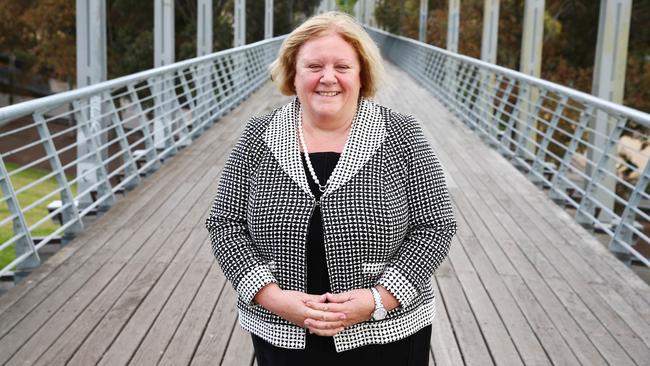
Australia’s largest aged-care companies are cautiously backing the government’s latest royal commission that will probe the $17 billion sector as a way to put funding for the industry on clearer footing, as investors brace for another bruising probe.
Three listed aged-care providers — Regis Healthcare, Estia Health and Japara Healthcare, which account for a combined $1.5bn in revenue each year — are firmly in the crosshairs of the commission, which Scott Morrison will instruct to investigate everything from behaviour of staff members to how the industry should be funded to cope with the nation’s ageing baby-boomer population.
The Prime Minister will work with industry members over the coming weeks to finalise the inquiry’s terms of reference, which are likely to examine the extent of poor care throughout the sector, funding and demographic challenges, and the needs of young people and those with disabilities living in aged care.
Mr Morrison said the royal commission would start as soon as possible and was likely to run into the second half of next year.
“We should brace ourselves for some pretty bruising information about how our loved ones have been treated,” Mr Morrison said yesterday, noting he had seen “a very disturbing trend” in a rise of abuses and non-compliant services in the industry since taking over from Malcolm Turnbull.
The snap decision, just three weeks after taking the top office, comes ahead of an expected explosive Four Corners report tonight, and marks the second royal commission launched into a high-profile industry by Mr Morrison, who last year reluctantly set up the banking and financial services royal commission.
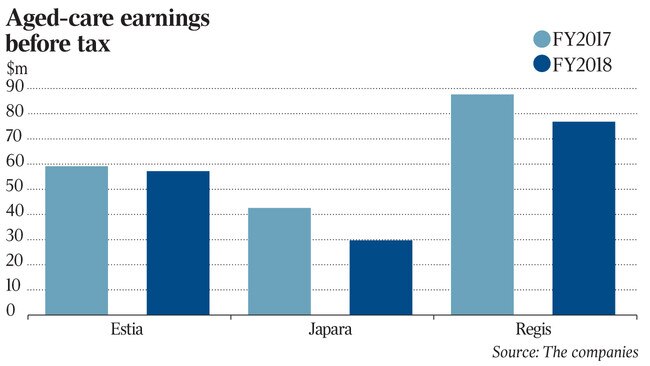
Mr Morrison yesterday did not rule out an inquiry into the nation’s energy sector.
The new royal commission also follows an investigation into retirement village business Aveo mid-last year that alleged exorbitant fees including exit fees and complex, lengthy contracts, and after South Australia’s Oakden facility was shut down after horrible conditions were revealed.
Norah Barlow, chief executive of the nation’s second-largest listed aged care operator, Estia Health, welcomed scrutiny of the sector if it found any measures to increase safety and quality care and if it resulted in a more sustainable sector. “Caring for the elderly is a privilege and enormous responsibility,” Ms Barlow said.
“We will continue to work with government to build a viable sector that older Australians deserve.”
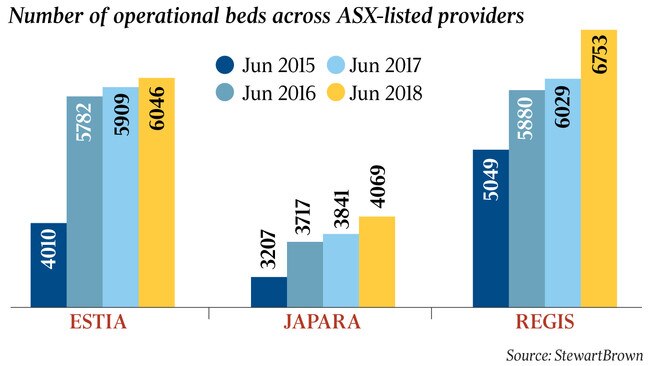
Aged-care companies are heavily reliant on government funding, and many have been under intense financial pressure due to the freeze last financial year of the Aged Care Funding Instrument. The three main ASX-listed groups, Regis, Estia and Japara, all receive close to $200 a day from the government for each occupied bed. However, wages in the sector have grown about twice as fast as subsidies.
The sector also had to deal with a number of surprise 2016 federal budget decisions targeting the ability for companies to claim higher amounts of money under the ACFI for residents with greater needs.
The government was concerned that companies were gaming the system for greater revenue, and sought to cut close to $2bn from the sector over four years.
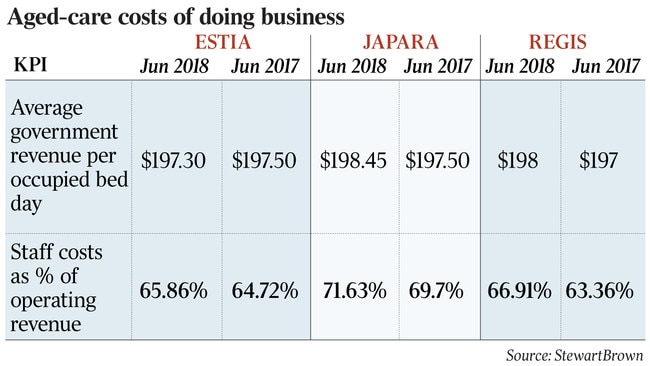
The budget changes forced aged-care companies to start looking for ways to be sustainable while relying less on taxpayer funding.
Consultants StewartBrown estimate nearly half of all aged-care facilities are operating at a loss, a rate that worsens in regional areas.
When asked about the budget changes yesterday, Mr Morrison said he was not “going to put up with lies about what’s happening in the sector” and that the royal commission would be working “not at the agendas of advocates” from the sector.
Anglicare Australia executive director Kasy Chambers said mistreatment in aged care was unconscionable, but called for “promoting wellbeing, instead of just preventing mistreatment”.
“That means confronting a major challenge: funding the system so that everyone has access to the care they need, without compromising quality,” Ms Chambers said.
Mutual retirement living group Australian Unity welcomed any focus on “the looming shortfall in aged-care workers”, noting that 180,000 extra carers would be needed by 2025.
“It will require all those involved in the delivery of aged care, including providers, government and unions, to work together to avert this looming crisis,” Australian Unity said.
The sector needs to find close to 90,000 extra beds for residents over the next decade, but fewer than 4000 new beds are available each year.
Japara Healthcare’s latest full-year net profit fell 21.5 per cent to $23.3 million after a severe flu season saw its average occupancy rates fall. The company also warned of cuts to government funding that had put pressure on its earnings, but did not respond to requests for comment yesterday.
Regis Healthcare, with a market cap of $1.1bn, also warned of government funding cuts at its most recent full-year results, when net profit dropped 12 per cent to $53.9m. Regis did not respond to requests for comment.
Estia Health, the $800m aged-care giant, recently reported a full-year profit of more than $41m. It has more than 8000 residents and about 70 per cent of its funding comes from the government.
Federal Treasury estimates show that over the next 40 years the proportion of the population aged over 65 will almost double to 25 per cent.
Shares in the $1.3bn Aveo have tanked more than 30 per cent since harrowing stories of former residents were reported, such as heavy-handed evictions for widows or widowers, and neglected residents left to die in abysmal conditions.
Hundreds of former residents have signed up for two separate class actions against Aveo, while the Australian Competition & Consumer Commission is investigating the group.
Aveo, which has details of its aged-care communities across four states on its website, yesterday refused to answer questions from The Australian.
“Aveo doesn’t run aged-care homes/communities,” a spokesman said.
Leading Age Services Australia chief executive Sean Rooney said the peak body had “repeatedly told government that the aged-care system settings have not kept pace with the increase in demand” for care and services.
“Review after review has been conducted and successive governments have failed to respond effectively,” Mr Rooney said.
“While the royal commission is under way we must press on with addressing key workforce and funding issues, and not lose sight of making the system better right now.”

